Act 1:
A hungry feeling came o'er me stealing
And the mice were squealing in my prison cell,
And that old triangle
Went jingle jangle,
Along the banks of the Royal Canal.
To begin the morning
The warder bawling
Get out of bed and clean up your cell,
And that old triangle
Went jingle jangle,
Along the banks of the Royal Canal.
The screw was peeping
And the lag was weeping...
(song breaks off here)
Act 2:
A hungry feeling came o'er me stealing
And the mice were squealing in my prison cell,
And the old triangle
Went jingle jangle,
Along the banks of the Royal Canal.
On a fine spring evening,
The lag lay dreaming
The seagulls wheeling high above the wall,
And the old triangle
Went jingle jangle,
Along the banks of the Royal Canal.
The screw was peeping
The lag was sleeping
While he lay weeping for the girl, Sal...
(song breaks off here)
The wind was rising
And the day declining
As I lay pining in my prison cell
And that old triangle
Went jingle jangle,
Along the banks of the Royal Canal.
In the female prison
There are seventy women...
(song breaks off here)
The day was dying and the wind was sighing,
As I lay crying in my prison cell,
And the old triangle
Went jingle jangle,
Along the banks of the Royal Canal.
Act 3, scene II (end of play):
In the female prison
There are seventy women
I wish it was with them that I did dwell,
Then that old triangle
Could jingle jangle
Along the banks of the Royal Canal.
A hungry feeling came o'er me stealing
And the mice were squealing in my prison cell,
And that old triangle
Went jingle jangle,
Along the banks of the Royal Canal.
To begin the morning
The warder bawling
Get out of bed and clean up your cell,
And that old triangle
Went jingle jangle,
Along the banks of the Royal Canal.
The screw was peeping
And the lag was weeping...
(song breaks off here)
Act 2:
A hungry feeling came o'er me stealing
And the mice were squealing in my prison cell,
And the old triangle
Went jingle jangle,
Along the banks of the Royal Canal.
On a fine spring evening,
The lag lay dreaming
The seagulls wheeling high above the wall,
And the old triangle
Went jingle jangle,
Along the banks of the Royal Canal.
The screw was peeping
The lag was sleeping
While he lay weeping for the girl, Sal...
(song breaks off here)
The wind was rising
And the day declining
As I lay pining in my prison cell
And that old triangle
Went jingle jangle,
Along the banks of the Royal Canal.
In the female prison
There are seventy women...
(song breaks off here)
The day was dying and the wind was sighing,
As I lay crying in my prison cell,
And the old triangle
Went jingle jangle,
Along the banks of the Royal Canal.
Act 3, scene II (end of play):
In the female prison
There are seventy women
I wish it was with them that I did dwell,
Then that old triangle
Could jingle jangle
Along the banks of the Royal Canal.
Contributed by Alessandro - 2010/2/23 - 14:50
Language: English
The Banks of the Royal Canal
La versione cantata da Eric Burdon
Version sung by Eric Burdon
La version chantée par Eric Burdon
Eric Burdonin laulama versio
--> "Ultimate Rarities Vol. 2", 70s and Early 80s Recordings
La versione cantata da Eric Burdon
Version sung by Eric Burdon
La version chantée par Eric Burdon
Eric Burdonin laulama versio
--> "Ultimate Rarities Vol. 2", 70s and Early 80s Recordings
THE ROYAL CANAL
A hungry feeling, came o'er me stealing
All the mice were squealing in my prison cell
And the old triangle, went jingle jangle
All along the banks of the Royal Canal.
To begin the morning, the screw bawling
Get up ya bowsie and clean up your cell
And the old triangle went jingle jangle
All along the banks of the Royal Canal.
The lags were sleeping, Humpy Gussy was peeping
As I lay there weeping for my gal Sal
And the old triangle went jingle jangle
All along the banks of the Royal Canal.
On a fine spring evening, the lag lay dreaming
The seagulls wheeling high above the wall
And the old triangle went jingle jangle
All along the banks of the Royal Canal.
The day was dying and the wind was sighing
As I lay there crying in my prison cell
And the old triangle, went jingle jangle
All along the banks of the Royal Canal.
Up in the female prison there are seventy women
And among them I wish I did dwell
Then the old triangle could go jingle jangle
All along the banks of the Royal Canal.
All along the banks of the Royal Canal.
A hungry feeling, came o'er me stealing
All the mice were squealing in my prison cell
And the old triangle, went jingle jangle
All along the banks of the Royal Canal.
To begin the morning, the screw bawling
Get up ya bowsie and clean up your cell
And the old triangle went jingle jangle
All along the banks of the Royal Canal.
The lags were sleeping, Humpy Gussy was peeping
As I lay there weeping for my gal Sal
And the old triangle went jingle jangle
All along the banks of the Royal Canal.
On a fine spring evening, the lag lay dreaming
The seagulls wheeling high above the wall
And the old triangle went jingle jangle
All along the banks of the Royal Canal.
The day was dying and the wind was sighing
As I lay there crying in my prison cell
And the old triangle, went jingle jangle
All along the banks of the Royal Canal.
Up in the female prison there are seventy women
And among them I wish I did dwell
Then the old triangle could go jingle jangle
All along the banks of the Royal Canal.
All along the banks of the Royal Canal.
Contributed by Alessandro - 2010/2/23 - 14:56
Language: Italian
Versione italiana / Italian version / Version italienne / Italiankielinen versio: Gianni Barnini
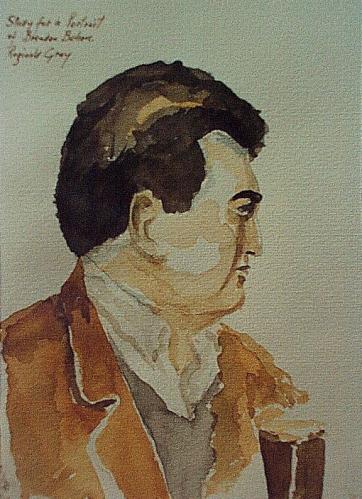
Cover metrica per essere cantata a tempo [GB]

Brendan Behan. Tempera all'uovo su pannello di legno di Reginald Gray, 1953
Cover metrica per essere cantata a tempo [GB]
IL TRIANGOLO ODIOSO (The Ould Triangle)
Brendan Behan
Una fame feroce mi opprime la voce
E’ una cella atroce topi qua e là
E il triangolo odioso con quel suono ansioso
Lungo tutte le sponde del Royal Canal
Di primo mattino il secondino
Grida taci e stai chino pulisci e stop
E il triangolo odioso con quel suono ansioso
Lungo tutte le sponde del Royal Canal
Una bella sera di primavera
Si sognava dove era la libertà
E il triangolo odioso con quel suono ansioso
Lungo tutte le sponde del Royal Canal
Eran tutti a dormire il gobbo a sbirciare
Io pensavo al mio amore la mia bella Sall
E il triangolo odioso con quel suono ansioso
Lungo tutte le sponde del Royal Canal
Su nell’altro settore ci son cento signore
Vorrei avere l’onore di essere lì
E il triangolo odioso con quel suono ansioso
Lungo tutte le sponde del Royal Canal
Brendan Behan
Una fame feroce mi opprime la voce
E’ una cella atroce topi qua e là
E il triangolo odioso con quel suono ansioso
Lungo tutte le sponde del Royal Canal
Di primo mattino il secondino
Grida taci e stai chino pulisci e stop
E il triangolo odioso con quel suono ansioso
Lungo tutte le sponde del Royal Canal
Una bella sera di primavera
Si sognava dove era la libertà
E il triangolo odioso con quel suono ansioso
Lungo tutte le sponde del Royal Canal
Eran tutti a dormire il gobbo a sbirciare
Io pensavo al mio amore la mia bella Sall
E il triangolo odioso con quel suono ansioso
Lungo tutte le sponde del Royal Canal
Su nell’altro settore ci son cento signore
Vorrei avere l’onore di essere lì
E il triangolo odioso con quel suono ansioso
Lungo tutte le sponde del Royal Canal
Contributed by Gianni Barnini - 2021/11/5 - 12:50
Language: Italian
Traduzione italiana / Italian translation / Traduction italienne / Italiankielinen käännös:
Cattia Salto
![L'impiccato di domani - L'ostaggio, due commedie di Brendan Behan. Prima edizione italiana, Feltrinelli 302-3 UE [Universale Economica], 1960](img/upl/impiccadom.jpg)
Cattia Salto
![L'impiccato di domani - L'ostaggio, due commedie di Brendan Behan. Prima edizione italiana, Feltrinelli 302-3 UE [Universale Economica], 1960](img/upl/impiccadom.jpg)
L'impiccato di domani - L'ostaggio, due commedie di Brendan Behan. Prima edizione italiana, Feltrinelli 302-3 UE [Universale Economica], 1960
Brendan riconobbe la paternità del testo all’amico Dickie di Wellington Street ovvero Richard Patrick Shannon (1916-1975). Di fatto ora la canzone è un tradizionale irlandese, una canzone di prigionia o, per estensione nei suoi risvolti “governativi”, una ballata politica. Un aforisma di Brendan Behan, guarda caso, era “The most important things to do on the world are to get something to eat, something to drink and somebody to love you”.
Il vecchio Triangolo
Un gran senso di fame [1]
Mi prendeva,
I topi squittivano
Nella mia cella
E il vecchio [2] triangolo [3]
Scampanellava [4]
Lungo tutte le sponde
Del Royal Canal [5]
Di prima mattina,
Il secondino [6] gridava:
“Alzati tu, ubriacone [7],
E pulisci la tua cella”
Una bella sera di primavera
Il detenuto stava sognando
I gabbiani volare
Alto oltre il muro
I detenuti [8] dormivano
E Gussey il gobbo [9] sbirciava
Mentre là stavo, piangendo
Per la mia ragazza Sall [10]
Sopra, nella prigione femminile,
Ci sono 75 donne,
E tra di loro
Vorrei stare
Ma solo il vecchio triangolo
Poteva scampanellare,
Lungo tutte le sponde
Del Royal Canal.
Un gran senso di fame [1]
Mi prendeva,
I topi squittivano
Nella mia cella
E il vecchio [2] triangolo [3]
Scampanellava [4]
Lungo tutte le sponde
Del Royal Canal [5]
Di prima mattina,
Il secondino [6] gridava:
“Alzati tu, ubriacone [7],
E pulisci la tua cella”
Una bella sera di primavera
Il detenuto stava sognando
I gabbiani volare
Alto oltre il muro
I detenuti [8] dormivano
E Gussey il gobbo [9] sbirciava
Mentre là stavo, piangendo
Per la mia ragazza Sall [10]
Sopra, nella prigione femminile,
Ci sono 75 donne,
E tra di loro
Vorrei stare
Ma solo il vecchio triangolo
Poteva scampanellare,
Lungo tutte le sponde
Del Royal Canal.
[1] Accostare il senso di fame con lo squittio dei topi la dice lunga sul tipo di cibo fornito in carcere.
[2] Auld, ould ovvero old a Dublino si pronuncia aul, come owl, ovvero ow-will, o ow-well. Non necessariamente si usa per identificare qualcosa di vecchio, quanto piuttosto come un intercalare affettuoso.
[3] Il triangolo suonava per la sveglia e richiamare i detenuti ai pasti.
[4] Jingle-jangle è un’espressione colloquiale.
[5] il carcere di Mountjoy confina con il Royal Canal, una volta arteria del traffico fluviale che collegava Dublino con il Nord attraverso il fiume Shannon. Caduto in disuso negli anni 1970 è stato resa nuovamente agibile per la navigazione e riqualificato parzialmente con la creazione della Royal Canal Way, un sentiero a lunga percorrenza da Ashtown (Dublino) a Abbeyshrule, nella contea di Longford.
[6] Brendan dice warder.
[7] Bowsey, variazione del vocabolo colloquiale boozy, che significa “ubriacone”. Nel dialetto anglo-irlandese, your non ha il significato di “tuo/vostro”, ma diventa una forma allocutiva, usata in senso ironico ed equivalente a “tu/voi”. Brendan invece dice Get out of bed
[8] Brendan dice screw.
[9] A detta dei detenuti un secondino un po’ brutale.
[10] In realtà la moglie di Dickie si chiamava Mary, ma così rima con wall
[2] Auld, ould ovvero old a Dublino si pronuncia aul, come owl, ovvero ow-will, o ow-well. Non necessariamente si usa per identificare qualcosa di vecchio, quanto piuttosto come un intercalare affettuoso.
[3] Il triangolo suonava per la sveglia e richiamare i detenuti ai pasti.
[4] Jingle-jangle è un’espressione colloquiale.
[5] il carcere di Mountjoy confina con il Royal Canal, una volta arteria del traffico fluviale che collegava Dublino con il Nord attraverso il fiume Shannon. Caduto in disuso negli anni 1970 è stato resa nuovamente agibile per la navigazione e riqualificato parzialmente con la creazione della Royal Canal Way, un sentiero a lunga percorrenza da Ashtown (Dublino) a Abbeyshrule, nella contea di Longford.
[6] Brendan dice warder.
[7] Bowsey, variazione del vocabolo colloquiale boozy, che significa “ubriacone”. Nel dialetto anglo-irlandese, your non ha il significato di “tuo/vostro”, ma diventa una forma allocutiva, usata in senso ironico ed equivalente a “tu/voi”. Brendan invece dice Get out of bed
[8] Brendan dice screw.
[9] A detta dei detenuti un secondino un po’ brutale.
[10] In realtà la moglie di Dickie si chiamava Mary, ma così rima con wall
Contributed by cattia salto - 2016/8/15 - 17:57
Language: Polish
Polskie tłumaczenie / Traduzione polacca / Polish translation / Traduction polonaise / Puolankielinen käännös:
Azalia (L. Trans.)
Pogues: The Auld Triangle
Azalia (L. Trans.)
Pogues: The Auld Triangle
Stary trójkąt
Uczucie głodu
ogarnęło mnie podstępnie,
a myszy piszczały
w mej więziennej celi [1].
A ten stary trójkąt [2] wydzwaniał bim-bom,
aż się niosło wzdłuż brzegów Królewskiego Kanału.
Na dzień dobry
strażnik się wydarł:
„Ty, wyłaź z wyra i ogarnij celę!”.
A ten stary trójkąt wydzwaniał bim-bom,
aż się niosło wzdłuż brzegów Królewskiego Kanału.
Ten kutas nas podglądał,
a nowy więzień spał,
płacząc przez sen
za swą dziewczyną, Sal.
A ten stary trójkąt wydzwaniał bim-bom,
aż się niosło wzdłuż brzegów Królewskiego Kanału.
W piękny wiosenny wieczór
nowy więzień leżał, marząc,
a mewy kołowały
wysoko ponad murem.
A ten stary trójkąt wydzwaniał bim-bom,
aż się niosło wzdłuż brzegów Królewskiego Kanału.
Wiatr powiewał,
a dzień umierał,
gdy nowy więzień leżał, płacząc,
w swej więziennej celi.
A ten stary trójkąt wydzwaniał cholerne bim-bom,
aż się niosło wzdłuż brzegów Królewskiego Kanału.
W kobiecym więzieniu
jest siedemdziesiąt kobiet
i szkoda, że to nie z nimi
mogę przebywać.
A wtedy ten stary trójkąt mógłby dzwonić bim-bom,
aż by się niosło wzdłuż brzegów Królewskiego Kanału.
Uczucie głodu
ogarnęło mnie podstępnie,
a myszy piszczały
w mej więziennej celi [1].
A ten stary trójkąt [2] wydzwaniał bim-bom,
aż się niosło wzdłuż brzegów Królewskiego Kanału.
Na dzień dobry
strażnik się wydarł:
„Ty, wyłaź z wyra i ogarnij celę!”.
A ten stary trójkąt wydzwaniał bim-bom,
aż się niosło wzdłuż brzegów Królewskiego Kanału.
Ten kutas nas podglądał,
a nowy więzień spał,
płacząc przez sen
za swą dziewczyną, Sal.
A ten stary trójkąt wydzwaniał bim-bom,
aż się niosło wzdłuż brzegów Królewskiego Kanału.
W piękny wiosenny wieczór
nowy więzień leżał, marząc,
a mewy kołowały
wysoko ponad murem.
A ten stary trójkąt wydzwaniał bim-bom,
aż się niosło wzdłuż brzegów Królewskiego Kanału.
Wiatr powiewał,
a dzień umierał,
gdy nowy więzień leżał, płacząc,
w swej więziennej celi.
A ten stary trójkąt wydzwaniał cholerne bim-bom,
aż się niosło wzdłuż brzegów Królewskiego Kanału.
W kobiecym więzieniu
jest siedemdziesiąt kobiet
i szkoda, że to nie z nimi
mogę przebywać.
A wtedy ten stary trójkąt mógłby dzwonić bim-bom,
aż by się niosło wzdłuż brzegów Królewskiego Kanału.
[1] Więzienie Mountjoy w Dublinie.
[2] (Za Wikipedią brytyjską) Duży, metalowy trójkąt, w który uderzano, żeby rano budzić więźniów, a o innych porach dnia sygnalizować rutynowe czynności. W ostatniej zwrotce autorzy wpisu w Wikipedii sugerują podtekst erotyczny (fantazje więźniów), gdzie poszczególne elementy symbolizują części ciała i czynności seksualne.
[2] (Za Wikipedią brytyjską) Duży, metalowy trójkąt, w który uderzano, żeby rano budzić więźniów, a o innych porach dnia sygnalizować rutynowe czynności. W ostatniej zwrotce autorzy wpisu w Wikipedii sugerują podtekst erotyczny (fantazje więźniów), gdzie poszczególne elementy symbolizują części ciała i czynności seksualne.
Contributed by Riccardo Venturi - 2022/10/25 - 11:43
Però forse la canzone andrebbe attribuita direttamente a Brendan Behan, visto che l'ha pure interpretata...
Alessandro - 2010/2/23 - 15:17
In questo sito ci siamo occupati di Brendan Behan anche a proposito del suo "Ostaggio", tradotto in greco da Vassilis Rotas con le musiche di Theodorakis. Vedi la pagina Ένας όμηρος
Gian Piero Testa - 2010/2/24 - 01:03
“The Auld Triangle” nota anche come “The Banks of the Royal Canal” è una canzone autobiografica, che alcuni erroneamente ritengono sia stata scritta da Brendan Behan (o dal fratello Dominic) durante uno dei suoi soggiorni alla prigione di Mountjoy. Brendan nella sua vita bohémien fu spesso ospite delle galere irlandesi e inglesi:
La prigione fu costruita nel 1850 per una popolazione di 500 detenuti arrivati ben presto a quota 2000, un carcere sovraffollato e tenuto in condizioni igieniche precarie oggi trasferito in una struttura più moderna! La madre Kathleen Behan in un'intervista ebbe a dire [1984]:
Brendan inserì la canzone nella sua commedia The Quare Fellow (vedi) ma egli stesso ne riconobbe la paternità all'amico Dickie di Wellington Street ovvero Richard Patrick Shannon (1916-1975). Un bevitore, un giocatore d'azzardo e un ladro, a suo modo sempre sincero, Dickie diceva: "A robber was honest when compared to a liar. A liar was the lowest of the low, as they would get you hanged for nothing more than malice"! Non proprio un barbone alla deriva, perchè aveva moglie e numerosi figli ma uno che doveva arrangiarsi con i lavori che gli capitavano e diceva "But such was the way of the world when you ran with rats".
Altre osservazioni da Terre Celtiche
"In March 1942 Behan was in Mountjoy for a few days after his release from borstal in Liverpool. In April he was arrested after a shoot-out with detectives near Glasnevin and sentenced to 14 years; he spent 18 months in the Joy, transferred to Arbour Hill, and released in an amnesty at the end of the War. He was back in Mountjoy twice more: in 1948 for assaulting a Garda and using profane and obscene language and in 1954 for drunk and disorderly." [Tim Carey, "Mountjoy: The Story of a Prison" (Cork: The Collins Press, 2000, 2005).
La prigione fu costruita nel 1850 per una popolazione di 500 detenuti arrivati ben presto a quota 2000, un carcere sovraffollato e tenuto in condizioni igieniche precarie oggi trasferito in una struttura più moderna! La madre Kathleen Behan in un'intervista ebbe a dire [1984]:
Our Brendan spent so long in jail, he wrote a lot about it. He wrote a lovely song to go with his play 'The Quare Fellow', and called it The Old Triangle, after the metal triangle that used to be rung to call the prisoners to their tasks.
Brendan inserì la canzone nella sua commedia The Quare Fellow (vedi) ma egli stesso ne riconobbe la paternità all'amico Dickie di Wellington Street ovvero Richard Patrick Shannon (1916-1975). Un bevitore, un giocatore d'azzardo e un ladro, a suo modo sempre sincero, Dickie diceva: "A robber was honest when compared to a liar. A liar was the lowest of the low, as they would get you hanged for nothing more than malice"! Non proprio un barbone alla deriva, perchè aveva moglie e numerosi figli ma uno che doveva arrangiarsi con i lavori che gli capitavano e diceva "But such was the way of the world when you ran with rats".
Altre osservazioni da Terre Celtiche
Cattia Salto - 2015/5/6 - 23:03
In realtà l'autore molto probabilmente non è Behan, ma un suo amico, Dickey Shannon:
en.wikipedia: The Auld Triangle
en.wikipedia: The Auld Triangle
Piersante Sestini - 2022/10/24 - 22:47
Con la premurosa sollecitudine tipica di questo sito, è stata accolta la proposta formulata il 23 febbraio 2010 dall'allora ortonimo Alessandro (ben prima dell'era Bernart Barleby / BB), e la canzone è stata reattribuita a Brendan Behan. Come sottolineato da più parti, il testo della canzone è stato scritto da Richard Patrick Shannon e l'attribuzione è stata quindi corretta anche nell'intestazione autoriale. Ne ho approfittato anche per restaurare un po' la pagina.
Riccardo Venturi - 2022/10/25 - 11:33
×
![]()
Note for non-Italian users: Sorry, though the interface of this website is translated into English, most commentaries and biographies are in Italian and/or in other languages like French, German, Spanish, Russian etc.


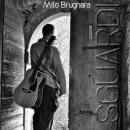

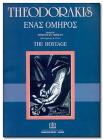
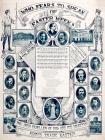
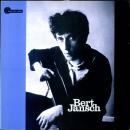

Testo / Lyrics / Paroles / Sanat: Richard Patric Shannon, aka Dickie, or Dickey Shannon (1916-1975)
Musica / Music / Musique / Sävel: Dominic Behan
Da / From / Tirée de: Brendan Behan, The Quare Fellow, 1954
Album / Albumi: Brendan Behan Sings Irish Folksongs and Ballads, 1985
Composta da Dominic Behan per l’opera teatrale “The Quare Fellow”, scritta nel 1954
dal fratello Brendanda Richard Patrick Shannon e presentata per la prima volta a Dublino nel 1955. La canzone è inclusa anche nell’LP “Brendan Behan Sings Irish Folksongs and Ballads”, Spoken Arts Records, 1985. I fratelli Dominic e Brendan Behan furono scrittori e drammaturghi ma, soprattutto, militanti repubblicani e socialisti. Il primo fu addirittura uno dei “dodici apostoli” di Michael Collins, eroe della resistenza irlandese contro gli inglesi. Il secondo ebbe un minore rilievo politico ed artistico, ma solo a causa della sua prematura scomparsa perché – come lui stesso disse – “I’m a drinker with writing problems". Entrambi comunque conobbero la lotta, il sangue, la prigionia, e di questo scrissero nelle loro opere."The Auld Triangle" (nota anche come “The Banks of the Royal Canal”) è la canzone che apre l’opera ed il suo titolo fa riferimento al triangolo di metallo, appeso al centro dell’area di detenzione, con cui si dava la sveglia ai prigionieri.
Molte le cover che ne sono state offerte: Ronnie Drew, Luke Kelly, The Dubliners, The Pogues, U2, Dropkick Murphys, Bob Dylan and The Band, Cat Power, Bert Jansch, Jeff Tweedy, Glen Hansard, Eric Burdon…